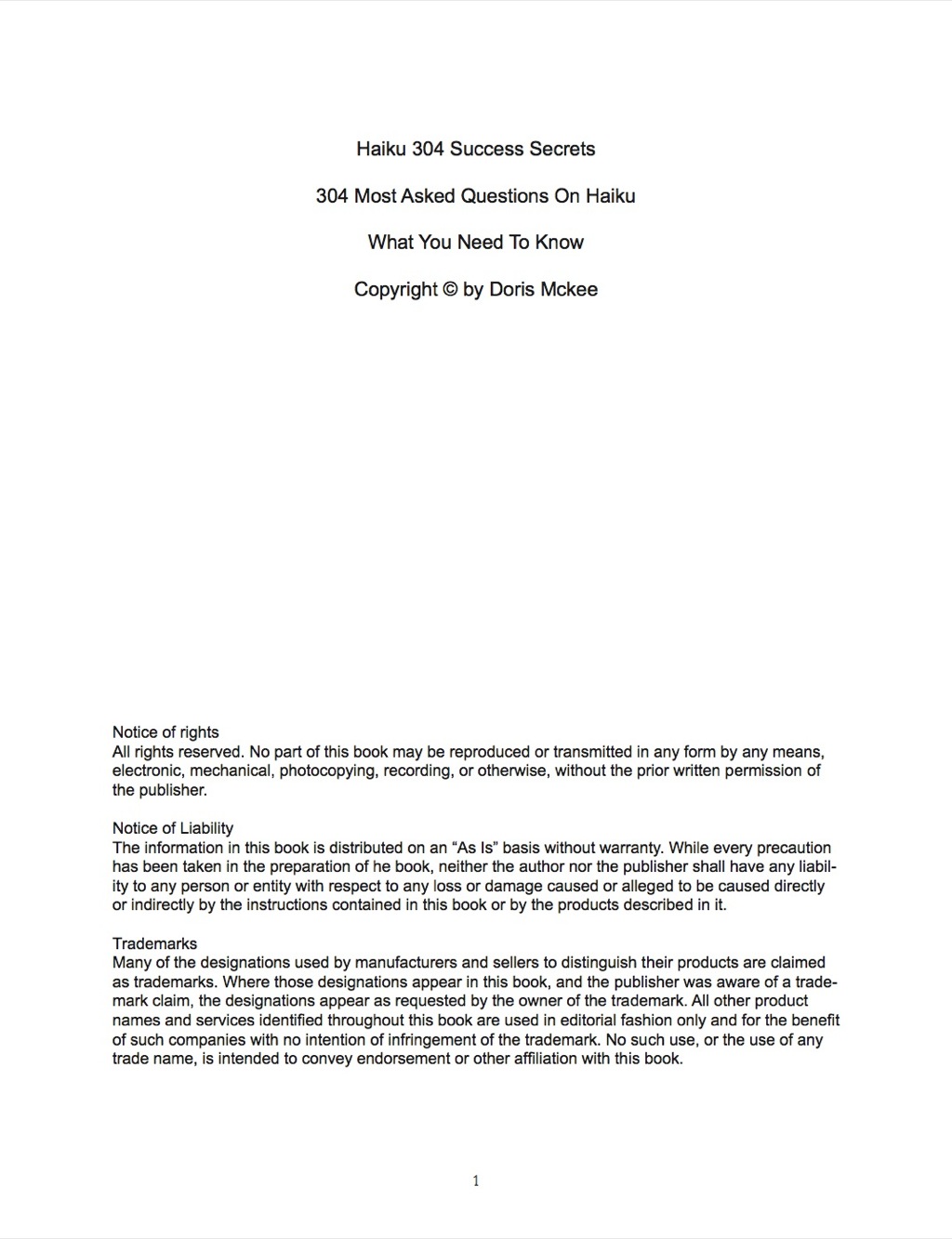Additional information
| Full Title | Haiku 304 Success Secrets – 304 Most Asked Questions On Haiku – What You Need To Know |
|---|---|
| Author(s) | Doris Mckee |
| Edition | |
| ISBN | 9781488801433, 9781488851438 |
| Publisher | Emereo Publishing |
| Format | PDF and EPUB |
Original price was: $20.02.$5.00Current price is: $5.00.
Access Haiku 304 Success Secrets – 304 Most Asked Questions On Haiku – What You Need To Know Now. Discount up to 90%
| Full Title | Haiku 304 Success Secrets – 304 Most Asked Questions On Haiku – What You Need To Know |
|---|---|
| Author(s) | Doris Mckee |
| Edition | |
| ISBN | 9781488801433, 9781488851438 |
| Publisher | Emereo Publishing |
| Format | PDF and EPUB |
Few Other Haiku Titles Offer So Much. (No apart plural form) is a real small shape of Japanese verse characteristically described by 3 qualities: There has never been a Haiku Guide like this.
It contains 304 answers, much more than you can imagine; comprehensive answers and extensive details and references, with insights that have never before been offered in print. Get the information you need–fast! This all-embracing guide offers a thorough view of key knowledge and detailed insight. This Guide introduces what you want to know about Haiku.
A quick look inside of some of the subjects covered: Haiku (operating system) – System requirements, Japanese language – Old Japanese, Senryū, Lyric poetry – 17th century, CyaSSL – Platforms, Taneda Santōka, Network File System (protocol) – Platforms, Human interface guidelines – Examples of HIG, William J. Higginson – Grants, awards, and other recognitions, List of kigo – Plants, Senryū – English-language senryū publications, Arora (web browser), Renga – Renga outside Japan, Masaoka Shiki International Haiku Awards – Awardees, Yokoi Yayū – Works, History of Haiku (operating system) – Progress, ReactOS – USB, Computational creativity – Combinatorial creativity, Haibun – Characteristics, 1954 in poetry – Deaths, Renku – Development, Matsuo Bashō – Early life, Ezra Pound – Imagism and Vorticism, Kenneth Yasuda – Biography, List of kigo – Saijiki and kiyose, List of Japanese language poets – B, Ogiwara Seisensui, Jaiku – History, Japanese poetry – Hokku, Literature – Poetry, Hendrik Doeff – Biography, Jonathan Clements – Books, List of Japanese poetry anthologies – Haikai and Haiku, Imagist – Early publications and statements of intent, Omer Tarin – Poetry, List of live CDs – Other operating systems, Haiku – English-language haiku, Haiku in English – One line (monoku), Kanji – Special readings, Conscience – Conscience in literature, art, film, and music, and much more…
